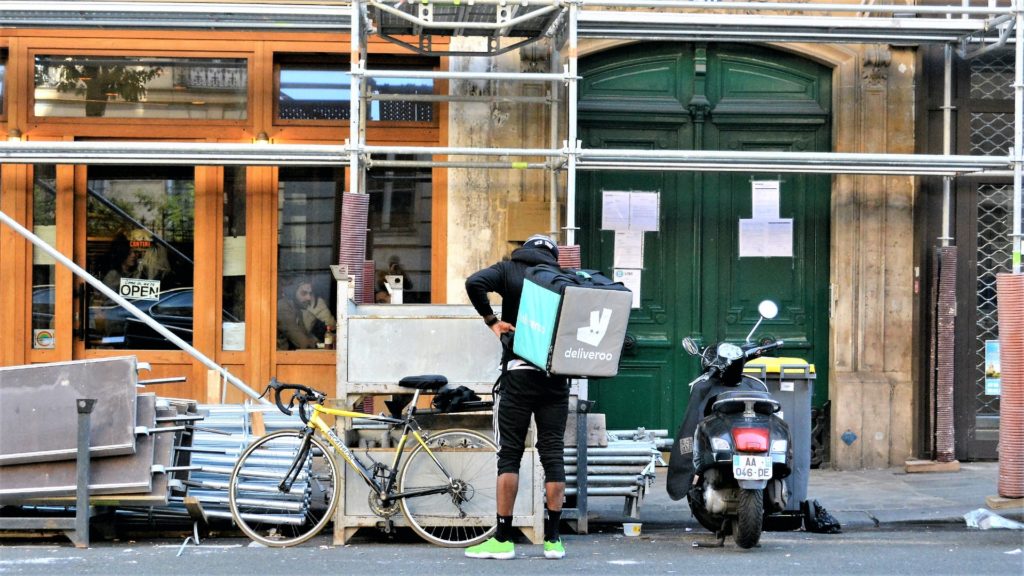A proposal from the EU Commission to reclassify the employment status of those who work for platforms such as Uber and Deliveroo would lead to "negative consequences", Deliveroo has warned.
Currently, those working for these platforms are considered independent workers, meaning that they do not receive many protections afforded to normal company employees. However, operators of these large (often multi-national) platforms claim that the proposed legislation would be detrimental to the services they offer.
“Evidence from around the world clearly demonstrates that reclassifying riders has negative consequences for riders themselves, consumers, restaurants and the wider economy,” a spokesperson for Deliveroo told The Brussels Times.
“These proposals will increase uncertainty and will be better for lawyers than self-employed platform workers.”
An under-regulated gig economy
Deliveroo is a British company that offers food delivery services, with customers submitting orders through the Deliveroo app and riders making the deliveries by bicycle or moped. They operate in 12 countries, including Belgium, the UK, France and the Netherlands.
As is the case with people working for other platform companies, also called “gig-work” companies because users take work on a case-by-case basis rather than agreeing to a longer-term employment contract, Deliveroo couriers’ status as independent contractors affects everything from taxation to access to labour rights.
Related News
- European Commission: Platform workers should be considered employees
- Long hours, unstable wages: a poor deal for food couriers
- UberEats gives 67 euros for lost work to courier forced to quarantine while wife battles Covid
The EU proposal would essentially flip the current classification system: instead of being independent contractors unless they can prove otherwise, workers would be considered employees with a right to basic labour protections unless they demonstrate that their role is truly as an independent contractor.
Less freedom than claimed
Platforms cite flexibility as the primary reason that people choose to earn with their apps, despite the lack of social protection or insurance that often comes with the work. But critics point out that users don’t actually have the freedom to choose their own hours that the companies claim.
'Gig work suggests flexibility, yet the business model often requires a tightly-curated service,' writes Jeremias Adams-Prassl in his book Humans as a Service: The Promise and Perils of Work in the Gig Economy.
'Life as a micro-entrepreneur,’ it turns out, is heavily conditioned by ever-watchful rating algorithms, which aggregate customer feedback and compliance with platform guidelines to exercise close (albeit often indirect) control. Failure to comply can have drastic results – up to and including sudden, unexplained "deactivation".'
Workers for platform companies are also unable to set the prices for their services, as genuine independent contractors can.
How things could change in Europe
The current proposal is expected to reclassify just 6-15% of the 1.72 to 4.1 million platform workers in the EU as employees, generally those who work full-time for their primary income, rather than people using the apps more casually to earn a supplementary income.
“The process to consider these draft proposals remains at an early stage,” Deliveroo’s spokesperson said.
“Proposals will impact all platforms differently and we will assess any impact they may have. We will constructively engage with the EU and Member States to ensure that our concerns and riders’ best interests are taken into account.”

